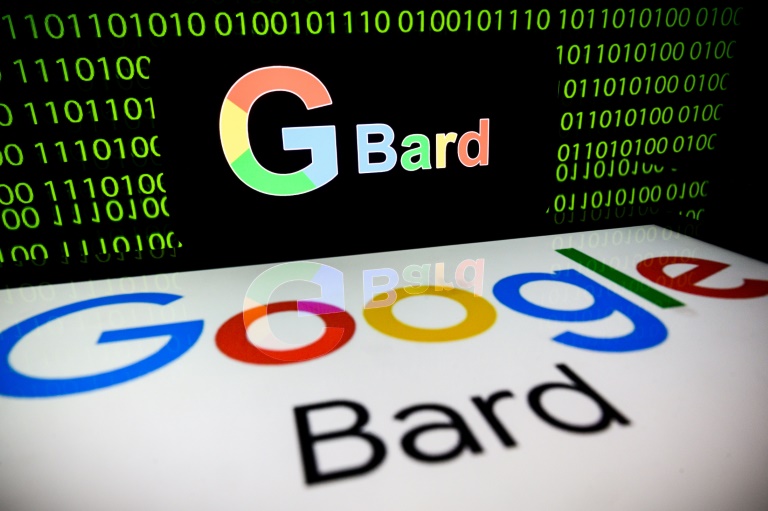Op-Ed: Why is the introduction of AI so chaotic? It’s an old mindset.

Google is giving its Bard chatbot a major artificial intelligence boost as ChatGPT-maker OpenAI deals with the aftermath of a boardroom coup that saw chief executive Sam Altman fired then rehired within a span of days. — © GETTY IMAGES NORTH AMERICA/AFP WIN MCNAMEE
It’s too easy to bang away about the risks of AI, job losses, and vague predictions. The huge bandwidth between hype and hopelessness is great for writers. It allows for any amount of recital of the obvious.
Job losses remain the biggest issue. “The job”, aka “the coffin” may not exist in 30 years. Careers will be in flux at best. Personal finances will be in a similar state. Add to this the mildly irritating question of the affordability of everything, and it’s SNAFU cubed.
Some things remain the same. You can still take ineffectual sides in arguments about something you know less than nothing about. You can fearlessly agree with anyone and anything, and much good it will do you.
“Isn’t it great?” and “Isn’t it terrible?” tick and tock away through the years. Very much like the whole subject of AI itself, the last thing on anyone’s mind is any kind of objectivity.
Objectivity like “What is this supposed to achieve?” is the last thing under discussion. The future is scary, mainly because nobody tries to learn how to navigate the minefields.
The digital revolution was considerably better. It lurched into being with personal computers, which were at least fun and interesting. Personal computers didn’t threaten you with personal oblivion.
The current view is a bit like the lyrics of the song “Que Sera Sera” – “The future’s not ours to see”. That’s true enough if you don’t bother to at least look and see. Most predictions are banal, others default to versions of The Simpsons, not all that surprisingly.
It’s also an accurate depiction of the world finding a cliff and jumping off it “because it’s there”. Not a lot of thought seems to have gone into real-world functionality.

To start with – This generation of AI is mainly Large Language Models tacked onto much older technologies and apps and high-speed processing. It’s a prehistoric form of the predicted Artificial General Intelligence.
It’s clunky. It’s unreliable with bugs. It’s reliable with bugs. In short, it’s exactly what you’d expect from any half-baked, over-hyped technology at startup point.
The sales pitches for saving a fortune in wages leave out the bit about having to oversight everything yourself when you fire everyone.
It’s great, it’s wonderful, it’s stupendous … and vague about implementation and integration costs.
Sounds like a weather forecast for “some rain” when it’s been bucketing down for days, doesn’t it?
There are far too many reasons for that. Most of those reasons are mindsets.
Huddle together in an impoverished society while I explain. See if you can find a bit of leftover mammoth to gnaw on.
The first iteration of this total social incompetence with technological change was during the Industrial Revolution.
Technologies destroyed the old way of life. People crowded in obscene levels into the cities to find work and were paid almost nothing for extremely long workdays. That was if they could find any work. They were very much poorer overall and their quality of life evaporated.
The new technology decimated and eventually obliterated the old economy.
People were now stuck with the haphazard state of the economy and simply tried to survive.
The leadership of societies decided the whole problem was the poor.
They were sure that the problems weren’t anything to do with their own incredibly bad planning and lack of foresight.
Generations were wasted while a pig-ignorant form of 19th-century capitalism found a clumsy social balance. This balance was unfair but “bearable” according to the rich.
Cities slowly and inefficiently adjusted to the strain but managed to institutionalize poverty on an industrialized scale. Squalor was the norm.
An image and a mindset were created whereby the poor were “idle”. Working 14-hour days for the privilege of living in appalling poverty was no excuse for idleness.
This extremely insular mindset has persisted. We now have ridiculous, inarticulate billionaires hyping the benefits of AI. We have idiotic and unnecessarily polarized governments doing the effectively non-existent planning.
They are being almost literally forced at gunpoint to address the new wave of technologies and economics. People with absolutely no understanding of the realities are supposed to solve the inevitable socioeconomic problems.
This insular mindset has another handicap. It’s the same mentality that can’t think of any use at all for 8 billion people.
On the purely conservative side, you have a sort of medieval vision of a future society which can’t exist. It’s basically The Handmaid’s Tale with smartphones.
On the progressive side, as usual, we have visions of an advanced Star Trek society which has gone beyond material needs. …And progressives who very verbosely aren’t doing a damn thing to make that happen.
Better still, on neither side are the logistics of AI getting much consideration. Training, for example, is a simple Yes or No. Both sides have sufficiently brainwashed themselves with their own ideologies to believe that training simply happens.
Things like “training in what, by whom, when, and how” aren’t an issue. This insularity assumes that it will “just happen” despite the ruinous state of education.
There are no systemic supports for this slapdash, scattergun approach to AI introduction. Therefore, AI will be far less effective than it could be. It’ll be all over the shop, in various species and forms.
Right at the moment, when the affordability of anything is an endangered species, costs and accessibility aren’t issues, either. Billions are being thrown like confetti at introducing this disorganized mess but no practical solutions.
That’s ironic. The one and only excuse for current AI in its fetal form is money. The intellectual property is valuable. The actual working technology as it is now, not so much. It’s basically Siri with a bigger database and a few apps.
The thing is – The obsolescence of current AI is already well underway. You may well be investing in the dodo. You do need to check that.
The Industrial Revolution took about 250 years to transform the world into something unrecognizable and mismanaged. It was only in the last 100 years that any sort of stable environment was created. The workhouses of London were a hideous example of the realities.
It’ll take about 25 years for AI to transform the world into a predictable techno-sewer at this rate. The result will be pretty much the same.
“But there’s money in it, grandma!” you cry, as your stretch limo skateboard drags you away to some horrific luxury resort amid the wastelands.
You can plan, and then implement. Don’t do it the other way, because you’ll be very, very, sorry.
______________________________________________________
Disclaimer
The opinions expressed in this Op-Ed are those of the author. They do not purport to reflect the opinions or views of the Digital Journal or its members.
Op-Ed: Why is the introduction of AI so chaotic? It’s an old mindset.
#OpEd #introduction #chaotic #mindset





